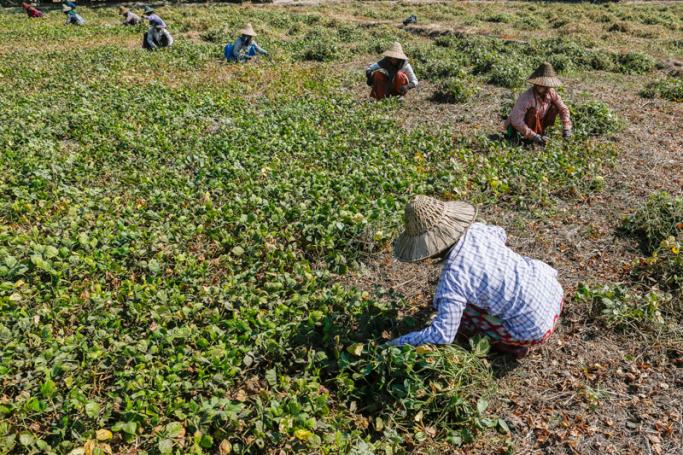IFC, a member of the World Bank Group, supported the Department of Agriculture of Myanmar’s Ministry of Agriculture, Livestock and Irrigation (MoALI) to launch Myanmar’s Good Agricultural Practices (GAP) Protocol and Guidelines recently. The objective of the guidelines is to boost the productivity and profitability of farmers through sustainable farming, the organisation said in a statement.
The GAP Protocol and Guidelines for 15 crops including tomatoes, peanuts, rice, and chili, among others, will guide cultivators on how to produce safe and quality products for the local and international markets. It will further aim to improve access to quality agricultural inputs, and help farmers develop the requisite skills for sustainable farming through training and knowledge transfer.
Myanmar’s agricultural sector is a key pillar of the economy and provides employment to about 53 percent of the labor force. Additionally, it is a source of livelihood for about 70 percent of the rural population. The guidelines will support the government’s objective of increasing productivity, market access and competitiveness of the agricultural sector by improving the provision of quality inputs to farmers. Additionally, it will help lead to solutions for improved sustainable agricultural practices.
“The launch of the GAP Protocol and Guidelines is an effort to boost farmers’ livelihood and develop Myanmar’s agricultural sector, which will contribute to economic growth,” said Dr. Aung Thu, the Union Minister of Agriculture, Livestock and Irrigation. “We appreciate IFC’s support and will push for the implementation of the GAP system across the sector.”
The launch of the guidelines is part of IFC’s ongoing advisory support to MoALI to bolster the sector’s productivity and competitiveness, delivered in partnership with Department of Foreign Affairs and Trade of Australia, the Department for International Development of the United Kingdom and the Government of Japan. Over the next two to three years, IFC will be working with the government to remove legal and regulatory obstacles to increase private sector participation in sustainable agriculture, raise quality standards for key export commodities and local food processing, and develop skills related to agri-input usage and improve quality standards.
“Quality agricultural inputs will elevate industry productivity and quality, raising incomes and creating jobs along the value chain,” said Vikram Kumar, IFC Country Manager for Myanmar. “Agribusiness is a strategic pillar of IFC’s work in Myanmar. In alignment with MoALI’s mission, we are supporting local firms to increase the availability of good-quality crop protection products and also improve access to agri-lending products for farmers.”
IFC has already been working with MoALI to promote improved usage of agri-inputs on the floating tomato farms, supporting its GAP program in Inle Lake, which involves over 300 tomato farmers, and may affect over 150,000 people depending on the lake for their livelihood.
You are viewing the old site.
Please update your bookmark to https://eng.mizzima.com.
Mizzima Weekly Magazine Issue...
14 December 2023
Spring Revolution Daily News f...
13 December 2023
New UK Burma sanctions welcome...
13 December 2023
Spring Revolution Daily News f...
12 December 2023
Spring Revolution Daily News f...
11 December 2023
Spring Revolution Daily News f...
08 December 2023
Spring Revolution Daily News f...
07 December 2023
Diaspora journalists increasin...
07 December 2023
Local Shan people call for their identity to be added to signboard












